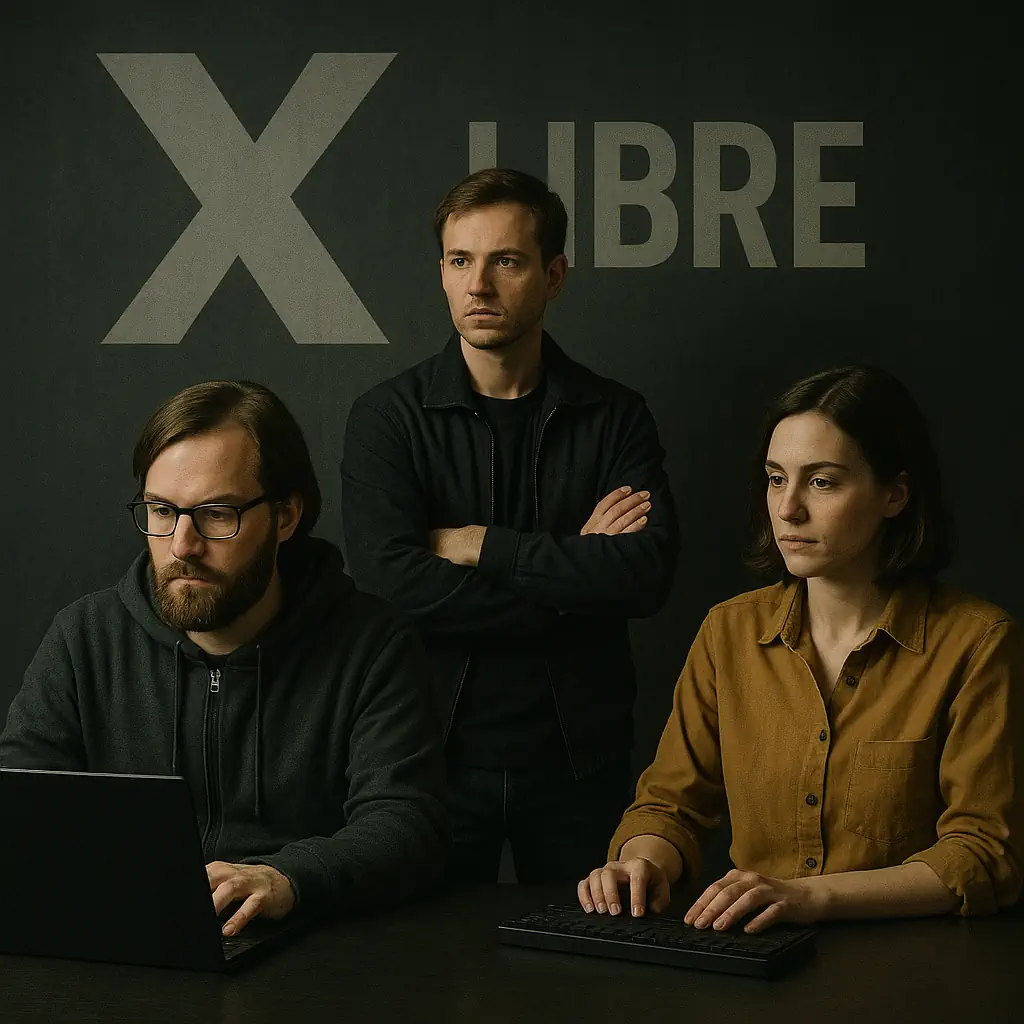In the quiet shadows of the Linux desktop world, a storm has been brewing—not of crashing systems or broken drivers, but of ideology. At the center of it lies X11, the long-standing display server that once powered nearly every graphical Linux environment. Its death has been slow, political, and deeply symbolic. And now, with the emergence of Xlibre, a fork not only of code but of culture, the old guard rises again, not only to preserve a piece of software history but to make a statement that many consider heresy in modern open source.
X11, born in the 1980s and carried into the modern age through the X.org project, was never glamorous. It is a protocol, an API, a sprawling tangle of design compromises layered over decades of Unix history. But it worked. It was composable, scriptable, remote-capable, and, most importantly, battle-tested. It served not only Linux desktops but also research labs, accessibility tools, and idiosyncratic setups that Wayland, its successor, still struggles to replicate.
A decade ago, Wayland appeared as the future. It promised security through simplicity, performance through a modern architecture, and elegance in place of legacy bloat. The technical motivations were real. But the transition was never purely technical. Wayland broke compatibility with X11 entirely, fracturing the developer ecosystem, alienating users of older desktops like MATE and Xfce, and most notably, placing increasing power in the hands of a few corporate players—Red Hat, Canonical, GNOME Foundation—who appeared united in their mission to bury X11.
The slow death of X11 was not accidental. Maintainers stopped accepting patches. Merge requests—hundreds of them—languished unanswered. Whole categories of bugs, such as multi-monitor support or GPU integration quirks, went unaddressed. Contributors were demoralized. Beneath it all, many began to suspect a quiet form of sabotage: not a technical disagreement, but a cultural purge. And into this silence stepped Enrico Weigelt.
Weigelt, a long-time X.org contributor and no stranger to controversy, did something audacious. He forked the X server. He accepted the patches. He gave it a new name: Xlibre—a name that suggests not just liberation from neglect, but freedom from what he saw as ideological capture. The README of Xlibre does not mince words. It claims that X.org has been infiltrated by "toxic elements" aligned with Big Tech. It accuses them of intentionally stalling X11 to eliminate it as competition to Wayland. And, most controversially, it declares that Xlibre is free of DEI—Diversity, Equity, and Inclusion—policies and the Codes of Conduct that have become standard in many modern open source projects.
That one line sent shockwaves.
Within 72 hours, Red Hat purged Weigelt from the X.org repositories. His GitLab account was banned. His merge requests were closed en masse. Canonical, Ubuntu’s parent company, went further, announcing they would remove X11 support entirely from future releases. What had begun as a technical fork became a cultural lightning rod.
This is where the story becomes something larger than a graphics server. Xlibre is no mere codebase—it is a boundary marker in the open source world. On one side are those who see DEI and Codes of Conduct as essential progress, mechanisms that correct structural inequities and ensure safety and inclusion in community projects. On the other are those who see these same policies as ideological impositions—tools of censorship, gatekeeping, and the enforcement of political orthodoxy under the guise of compassion.
The Xlibre README is explicit: meritocracy only. No ideological litmus tests. No enforced "safe spaces." To its supporters, this is a long-overdue stand against the politicization of code. To its detractors, it is regressive, dangerous, and a Trojan horse for reactionary backlash.
Yet Xlibre also exposes a profound irony. Despite all the talk of inclusion, accessibility under Wayland remains poor. Keyboard-only workflows, screen readers, legacy hardware support—all better served by the supposedly outdated X11. Wayland may offer high dynamic range and adaptive sync, but for many users, especially those who rely on assistive technology or prefer older interfaces, Wayland still falls short.
Weigelt’s stance may be polarizing, but the facts are harder to dismiss. Over a thousand community fixes were being ignored. Then, as soon as someone tried to make them real, the banhammer fell. Why? Was it his politics? Was it fear of losing control? Or was it that Xlibre's very existence exposes the fragility of the current ideological consensus within open source?
It would be easy to dismiss Xlibre as a fringe rebellion. But that would ignore history. X11 itself began as a fork of XFree86, born from similar frustrations. The current maintainers of X.org once stood in the same position as Weigelt: pushing against stagnation, against opaque decision-making, against what they saw as bad leadership. The cycle repeats. Forks are not just tools of development—they are acts of defiance.
We are entering a new era in open source. One where the lines between code, culture, and control are no longer subtle. Xlibre is not just a fork of X11. It is a fork in the road. And everyone who writes code, uses Linux, or believes in the idea of digital freedom will, at some point, have to choose a path.
For now, the question is not whether Xlibre will succeed technically. The question is whether a project that refuses the dominant cultural script of modern FOSS can survive—or whether it must be destroyed to protect the narrative.
Time, as always, will compile the answer.
Ref:
Advertisements:
Book to read:
- The Sovereign Individual (Amazon Affiliated)
- The Art of UNIX Programming (Amazon Affiliated)
T-shirt:
Grab this T-shirt home for KISS!





